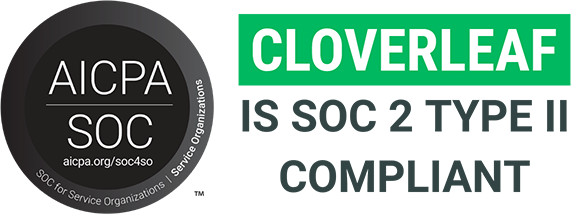Have you ever wondered about the buzz around emotional intelligence (EQ)? This concept, explored for decades, truly gained traction with Daniel Goleman’s groundbreaking book. Imagine this: while the content of our work (our IQ) deals with the ‘what,’ EQ is all about the ‘how’ — managing our emotions, understanding others, and nurturing relationships. It’s like knowing the notes but mastering the music in leadership.
Emotional intelligence (EQ) is not just a buzzword; it’s a pivotal skill in leadership, akin to a harmonious dance between different parts of our brain. Effective management intertwines the analytic network (AN) and the empathic network (EN) in our brains. As this Harvard Business Review article highlights, leaders who can balance these neural networks drive better business outcomes and cultivate an environment rich in empathy and understanding. Your ability to connect and build rapport, crucial in today’s collaborative work culture, hinges on self-awareness and empathy.
EQ is the secret ingredient for personal growth and organizational triumph. It’s not just about being smart; it’s about being wisely connected to those around you. In a workplace where employee engagement and job satisfaction can so significantly be impacted by the quality of the leader, sharpening emotionally intelligent leadership is necessary for individual and organizational success.

What Is Emotional Intelligence?
Emotional intelligence, or EQ, is your skill in understanding and managing your own emotions, as well as recognizing and responding to the emotions of others. It’s a blend of five essential skills:
- Self-awareness (recognizing your emotions)
- Self-regulation (controlling emotions)
- Motivation (using emotions to drive yourself forward)
- Empathy (understanding others’ emotions)
- Social skills (using emotional understanding in interactions)
It’s more than just feeling emotions; it’s using them to enhance communication and relationships.
Unpacking the 5 Components of Emotional Intelligence
Embracing emotional intelligence in leadership is like tuning a musical instrument – it’s about finding harmony in your strengths and addressing the areas that need a little more attention. EQ unfolds in five key components, each uniquely influencing effective leadership. Let’s dive into these components, and I’ll offer some coaching questions to help you reflect on your strengths and areas for growth.
1. Self-Awareness: Reflecting on Your Inner World
This is the cornerstone of EQ. It’s about understanding your emotions and the ‘why’ behind them. It’s like being the detective of your mind, unraveling the mysteries of your reactions and feelings.
Reflective Questions:
- Do you recognize how your actions echo in your workplace?
- What are your go-to practices for maintaining self-awareness?
- How do you respond to critical feedback – with openness or defensiveness?
2. Self-Regulation: Navigating Emotional Currents
Picture this as the art of emotional balance. It’s about managing your emotions, particularly the challenging ones, and responding to workplace situations with poise and thoughtfulness.
Reflective Questions:
- Can you identify your emotional triggers in the workplace?
- After a tough conversation, do people feel respected and heard?
- How do you maintain your equilibrium during emotional turbulence at work?
Self-Regulation in Action: Let’s take a real-world scenario. Imagine you’re in a heated team meeting. Someone challenges your idea, and you feel conflict rising. A leader skilled in self-management might take a moment to breathe, recognize their emotional response, and choose to respond calmly and constructively, turning a potential conflict into a productive discussion. This approach can diffuse tension and model emotional maturity for the team.
By exploring and enhancing these components of EQ, you’re not just growing as a leader but enriching the entire team dynamic. You’re fostering an environment where emotional intelligence is the norm, not the exception. So, as you ponder these questions, think about how your answers resonate with your leadership style and how they impact those around you.
3. Motivation: Sparking Your Inner Drive
In the realm of EQ, motivation isn’t just about ticking boxes or hitting targets; it’s an internal journey. It’s about igniting your intrinsic drive to grow and stay true to your goals, coupled with a dose of optimism and resilience. Think of it as the inner compass guiding your leadership journey.
Coaching Questions for Motivation:
- What goal-setting frameworks energize you?
- Who in your circle is your ‘motivation mentor’ keeping you accountable?
- Are you open to discovering silver linings in challenging situations?
- How do you cultivate resilience to rebound from setbacks?
Imagine a leader facing a project delay. Instead of spiraling into frustration, leaders with emotional intelligence tap into their motivation, see the delay as an opportunity for refinement and encourage the team to view challenges as growth moments.
4. Empathy: Empathy: Connecting with Diverse Perspectives
Empathy in leadership transcends mere sympathy. It’s about stepping into another’s shoes and understanding the perspective and emotions of others, even when they diverge from your own. This is especially vital in appreciating the diversity of thoughts and experiences in the workplace.
Coaching Questions to Practice Empathy:
- Do you embrace or resist perspectives different from your own?
- How much effort do you put into building trust and understanding within your team?
- Reflect on a time when someone’s empathy made a difference to you. What impact did it have?
- What practices help you connect with others’ experiences and viewpoints?
- Consider a leader handling an argument. By practicing empathy, leaders can successfully use conflict resolution to strengthen the team, showing that understanding diverse viewpoints is not just about solving problems but building a more inclusive and harmonious culture.
5. Social Skills: The Art of Engaging Communication
Social skills in leadership go beyond mere talking; it’s about mastering the art of listening and empathetically connecting with others. Great social awareness means you can convey your thoughts confidently and respectfully, handling conflicts gracefully, even in the trickiest situations.
Reflective Questions for Enhancing Social Skills:
- Where in your team interactions could your communication be more impactful?
- Do you adopt a ‘coach approach’ in conversations, prioritizing curiosity and listening over directing and explaining?
- How do your team members view your role in group dynamics?
- Are you the go-to person for advice, support, or resolution?
Soft Skills in Action: Consider a scenario with a misunderstanding in your team. An emotionally intelligent leader uses this opportunity to clarify and understand an individual’s underlying concerns. They listen actively, ask open-ended questions to uncover deeper insights, and then communicate solutions that resonate with everyone involved.
Enhancing your social skill competencies is not about changing who you are but evolving how you interact and connect. It’s about being a leader who listens, understands, and then leads – a leader who’s as adept with people as they are with projects.

HUMAN SKILL PROGRAMS ARE HITTING LIMITATIONS...
- Close the widening gap between learning and on-the-job application
- Overcome the tension of pausing productivity for development opportunities
- Integrate learning so it is actually in the flow of work
- The evolution of human skill development
- What Automated Coaching™ is and how it works.

The Impact of EQ in Leadership Dynamics
Reflecting on the EQ-related questions we’ve discussed, it’s clear how they can streamline our interactions at work. Often, we fall into the trap of making assumptions about others’ behavior, shaping our responses based on these perceptions. Emotional intelligence flips this script. It empowers us to be leaders, prioritizing understanding and empathy and putting learning before action.
True leadership begins with self-leadership. When deeply connecting with our truths, we’re better equipped to lead authentically, transcending the confines of titles and roles.
Great leaders stand out in their ability to make informed decisions and guide their teams effectively. They are adept at tuning into both their own emotions and their team members. This deep understanding enables them to master team dynamics, smoothly navigate conflicts, and maintain a strong team identity focused on collaborative success. Here’s a look at four key benefits when leaders operate with high emotional intelligence:
4 Key Benefits of High EQ in Leadership
1. Elevated Team Performance and Collaboration: Successful leaders with high EQ excel in ‘reading the room’ and understanding themselves, which is crucial for steering teams toward meaningful collaboration. This ability to mitigate conflict and foster productive dialogue keeps teams laser-focused on objectives, steering clear of the pitfalls of unresolved dynamics.
2. Enhanced Decision-Making and Problem-Solving: Emotionally intelligent leaders navigate the emotional landscape of their team with finesse, building strong connections. This fosters a collaborative environment for decision-making and problem-solving. By leveraging individual strengths, they keep the team unified and centered on the task at hand, avoiding interpersonal friction.
3. Strengthened Interpersonal Relationships: A leader with high emotional intelligence builds strong one-on-one connections and amplifies the entire team’s relational dynamics. Their charisma and leadership skills are key in coaching team members and cultivating positive and productive team interactions.
4. Resilience During Challenges and Stress: A high EQ leader is calm in storms and high-pressure situations. They navigate stressful deadlines and challenging projects with ease and assurance, fostering an environment of trust and collaboration. This resilience is crucial in guiding teams through turbulent times while maintaining focus and morale.

EQ in Action: Beyond the Boardroom
Indra Nooyi’s tenure as PepsiCo’s CEO profoundly exemplifies emotionally intelligent leadership. Her unique gesture of writing personal letters to the parents of her executive team members showcased a deep emotional connection. This simple yet powerful act demonstrated an appreciation for the human stories behind each employee, fostering a high-trust work environment.
However, the influence of EQ extends beyond nurturing a positive workplace. Research substantiates that companies with a culture of high empathy often see tangible benefits in their performance and revenues. This underscores that EQ isn’t just about feel-good factors; it directly contributes to the bottom line, proving that empathy and emotional understanding are valuable assets in any successful business strategy.
Cultivating EQ: A Journey of Continuous Growth
Developing emotional intelligence isn’t a one-off achievement; it’s an ongoing process of practice and refinement. Think of it like gardening – nurturing growth through consistent care and attention. Here are four strategies to cultivate your EQ:
1. Self-Awareness Exercises:
Incorporate consistent self-awareness practices like journaling or reflection. This could be a daily routine or several times a week. The key is repetition, which steadily boosts self-awareness. Cloverleaf’s reflections feature offers an excellent tool for teams to engage in this practice, fostering a mindful start to the workday.
2. Feedback Loops and Seeking Input:
Actively seek feedback during formal reviews and everyday interactions. Regularly asking for input and observing response patterns provides valuable insights into how others perceive you and your actions. This practice is crucial in understanding and improving your impact on those around you.
3. Active Listening Practices:
It’s more than just not talking; it’s about truly understanding before responding. Resist the urge to jump into explanations and instead cultivate curiosity about the person or situation. Practice asking questions rather than always offering solutions.
4. Continuous Learning:
Engage in varied activities like reading, participating in group discussions, attending conferences, or receiving coaching. The goal is to deepen your understanding of yourself and others continuously. Don’t just absorb information; discuss it, reflect on it, and set practical goals to apply what you’ve learned.
Developing emotional intelligence transcends academic learning; it’s an experiential and personal journey. It’s not a skill mastered overnight nor gleaned from a book. It demands time, openness, and a willingness to venture beyond your comfort zone. Remember, we’re all on this path of self-discovery and a better understanding of others. It’s a shared human journey. Commit to your goals, not just at work but in every interaction. Let each step take you closer to leveraging your best self, embracing every opportunity to grow and connect more deeply.
Explore how Cloverleaf enhances leadership through emotional intelligence. Discover our unique approach to merging EQ development with leadership growth so that you can align them with your organization’s goals. See how Cloverleaf’s tools can help you validate ROI and uplift individual and team performance. Begin your journey to leadership excellence and teamwork today with Cloverleaf.



